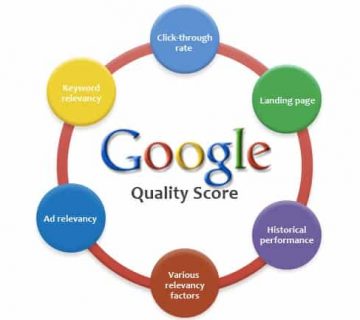Creating an E-shop – What you will need in order to get started?
For those of you who want to expand your online business by creating an eshop, proper preparation is needed to increase your chances of success. First you need to have a realistic, well-designed business plan, the right budget, and a team of accountants, a specialist in law and an experienced e-commerce company who knows the creation and operation of the online shop (design, construction, training, technical support, etc.)
Παρακάτω θα απαριθμήσουμε 7 σημαντικά βήματα για να ξεκινήσετε ένα e-shop
1. Starting a commercial business in the tax office
If you are already in business things are easy once you have started in the tax office. Just ask your accountant if you need to open an extra CAB.
For those of you who do not already have a business, you need to create one before you can issue the necessary sales documents as Greek law requires them to be issued.
The steps to be taken are:
- Provisional registration with the competent chamber and verification of the desired brand. In the case of eshop you can choose between a professional and a chamber of commerce.
- Certificate of registration with the insurer (EFKA / OAEE) which will then be submitted to the competent DOJ.
- Commencement of taxation and acquisition of VAT.
- Final registration with the competent chamber and its registration in the General Commercial Register (GEMI).
In any case you should consult an experienced accountant – a tax consultant. In addition, you will need a cash register or tax mechanism to issue receipts.
In terms of business headquarters the advantage of E-shop is that having a physical store is not necessary, but just a warehouse where you move your products and become the legal headquarters of the company. The costs of running E-shop are simply too much lower than that of any store.
2. Legal coverage
You should avoid copying the necessary legal texts from your competitors’ online stores (terms of use, GDPR, etc.). A qualified lawyer can help you with the legal texts of your eshop.
For example, here are some steps to take with the help of an expert:
- Carefully prepare the right terms of use and privacy policy that will ensure your business. The terms of use are an essential means of protection both for the provider of products and services through the online store and for the customer.
- Simply put out your order, payment, shipping and return policies. Clear policies help improve customer confidence in the company.
- Enhance your business copyrights (trademarks, patents, applications, etc.)
- Adopt the Right to Privacy Policy (GDPR)
3. Choice of carrier / courier
The options are numerous and it would be helpful to do a short market research and ask for as many as you can. Some of the selection criteria, besides of course the cost to negotiate with them, are:
- The reputation and reliability of the shipping company.
- The area it covers (nationwide, islands, inaccessible areas, etc.).
- Delivery and delivery times.
- The electronic tracking & monitoring system with which the eshop should be connected.
- Be sure to give your customers alternative shipping options by providing all possible options. The online store should support the interconnection and automation of the shipping process for more than one courier.
4. Alternative payment methods
Similar to shipments you should make it easier for your customers by providing multiple payment alternatives. Payment methods fall into two main categories:
Online payments
These are the electronic payments made entirely through the eshop and its interface with the corresponding payment gateway. Popular payment systems in Greece are:
- The systems of Greek banks for credit card payment (Cardlink, i-bank ecommerce, ePOS Paycenter)
- Well-known payment gateways such as Paypal, Skrill, Viva Wallet, EveryPay etc.
Offline payments
These are the ones that take place after the market is completed and outside the eshop. They usually require more time to process and collect. Nevertheless, they remain popular choices in Greek eshop as Greek consumers prefer them as a more “safe” method. The most popular offline payments are:
- Bank deposit,
- Delivery by courier,
- Payment and receipt from the store.
- You will receive detailed information on the process and the prerequisites for connecting eshop to the payment system from the company that will undertake the construction of the eshop, the bank of your choice and of course the corresponding website (eg PayPal for Merchants – get paid on your website).

5. Customer Support
Customer support is one of the most important business functions. Since your customers do not have direct contact with you and your staff – their prompt and effective service is vital. The eshop will operate 24/7 so you should offer extended support hours beyond the regular store hours and through different communication channels (eg phone, email, online chat, help desk web platform).
A key rule of good service is to respond promptly to customer requests. To be sure that you will not forget to reply to their messages, be sure to use the help desk management software that should include your online store.
6. Design and Technical support of the Eshop
The company that will undertake the technical support of your eshop should have the following:
- Long experience in web & ecommerce technologies.
- Rich case studies with well-known eshop & portals.
- Expertise in software integration development for the unavoidable interfaces and adaptations that will be needed in the future (eg ERP, CRM, analytics, metrics, payment systems, vendor systems, etc.).
- Experienced technical support team.
- Use popular open source or open standards ecommerce platforms (eg Prestashop, Woocommerce, Magento, etc.) to avoid being trapped in obsolete technologies and ineffective partners.
The average lifecycle of your online store platform is between three and five years. As you can see, choosing the company that will undertake the construction of the eshop is a very important factor in your new business plans. Make sure your startup is done with method and proper preparation, with qualified and experienced technical partners close by.
7. Marketing & Sales
Για τη στοχευμένη προβολή και προώθηση του ηλεκτρονικού σας καταστήματος είναι απαραίτητη η ύπαρξη ενός σωστά οργανωμένου πλάνου. Ο αριθμός των εργαλείων και των μέσων (καναλιών) διαδικτυακής προβολής και επικοινωνίας είναι αρκετά μεγάλος, ενδεικτικά αναφέρουμε:
- SEO & Search Engine Marketing (for example. google ads)
- Social media marketing & advertising (Facebook, twitter, instagram, pinterest, etc)
- Price comparison sites (Skroutz, Best Price, etc)
- Marketplaces (amazon, ebay, etc)
- Retargeting
- Youtube
- eMail marketing
In terms of sales it is especially important that your online store has mechanisms to help increase sales such as:
- Cross selling & up selling
- Discounts and discount coupons
- Gift cards and gift lists
- Points reward system
- Product configuration
- Product packages and accessories
- Offers at check out
- Deals (of the month, week, day, etc.)
Implementing and perfecting your online store is especially important to leave in the hands of someone who is not a professional.
Plan methodically and coordinate the actions to be taken. This will get you off to a good start with the guidance and support of your experienced partners.

